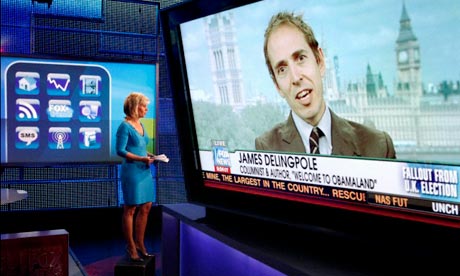Subterfuge, menace and
politics. These things are deeply compelling. You need not linger long on your
favourite news program to hear stories of intimidation and drama,
breathlessly and urgently thrust at viewers hungry for cunning.
A frequent casualty in
the ever-churning maelstrom of political drama is rational discourse. As soon
as powerful individuals with interests in fossil fuels opened their wallets to climate denial, public conversation became horribly disfigured – a cabal of non-expert climate change deniers, furiously and
tirelessly disseminating falsehoods across many different forms of media.
 |
| The science of climate change has become heavily politicised (source: news.com.au) |
Muting science with
emotive political manoeuvring has been the modus operandi of the anti-wind lobby for several years.
Though much of their lobbying is set on implying that wind energy is a threat
to human health, there is no published scientific evidence to suggest that this
is the case. Randall Bell, president of the Victorian Landscape
Guardians, openly admits a political skew in an interview with Four Corners:
ANDREW FOWLER: For Randall Bell and the Landscape Guardians, the battle against wind farms is no longer purely a scientific argument.
RANDALL BELL: It's always political. It always was. I never got it until very late in life that it was always going to be about votes.
ANDREW FOWLER: So it's a battle. It's a political battle.
RANDALL BELL: Yes.
ANDREW FOWLER: And you use any weapon you can to win that?
RANDALL BELL: Yes.
The deficiencies and logical fallacies inherent in the claims of anti-wind groups are
slowly growing more public. As their claims are examined more thoroughly,
the need to distract with increasing quantities of drama grows.
 |
| 'Wind Turbine Syndrome' is borne of individuals heavily divested from standard scientific methodology. A deficiency in scientific rigour is masked through a focus on politics, drama and emotion. |
Recently, the TasWind development on King Island faced the political
weaponry of the anti-wind lobby firsthand. The Waubra Foundation, a key player
in anti-wind activism across Australia, has become deeply intertwined in the proposal.
According to an anonymous and emphatically hyperbolic anti-wind blog, threats to the CEO of the Waubra Foundation's safety were brought to the attention of Tasmanian police.
The concerns were
called actually in by anti-wind groups from North America and Spain. Mark
Duchamp, founder of the ‘World Council For Nature’, was behind the email to Tasmanian police:
“She is known worldwide for her devotion to wind farm victims and her awareness campaign, but in her own country she has received multiple threats”
Three articles are
referenced as evidence of these threats. It's worth considering their content in some detail.
"Battle for King Island: Wind energy politics at 20 paces" is a thoughtful piece on the events at King Island, and mentions Sarah Lauriea few times. Nowhere is Laurie threatened, insulted or denigrated. If critiquing the intentions or credentials of a lobbyist were to constitute a threat to safety, then 99% of all media content would be instantaneously criminal.
"Wind farm fear mongering: It’s enough to make you sick" is an examination of a series of claims made by Laurie in a radio interview. The author, Mike Barnard, deflates the various falsehoods stated by Laurie. He also provides references for his assertions. Nowhere is Laurie threatened, insulted or denigrated.
"Authorities examine complaint against anti-windfarm activist" reports on the CEO of the Waubra Foundation, Sarah Laurie, being the subject of a complaint directed to the NHMRC, for conducting unethical reseach. The Waubra Foundation recently released an official response to the news, replete with conspiracy theories, claims of a "contemporaneous and coordinated press campaign" and an astonishingly unhinged request for a Royal Commission into the complaint.
These concerns were
raised by anti-wind campaigners thousands of kilometres from King Island.
Significantly, their concerns were predicated not on unambiguous threats, but on fully-referenced critiques of Laurie's statements, including an
article on her own potential misconduct. Compare the articles above to an actual threat [PDF, language warning], sent to climate
scientist Phil Jones:
Sent: Sunday, February 07, 2010 5:34 PM
To: p.jones@uea.ac.uk
Subject: Kill youself (sic) scum
Fuck you for your lies and deceit. You deserve to die. And if you don’t take your own life, then I fucking hope someone does it for you.
 |
| Some of the more colourful emails sent to climate scientists. (source - Treehugger) |
The gulf between real
threats of violence and Duchamp’s skewed perception of threat is vast. Climate
scientists now have to regularly deal with death threats – a nasty and unforgiveable by-product of the
approach of climate change deniers, such as James Delingpole.
 |
| James Delingpole recently promoted the 'metaphorical' murder of climate science proponents (source - The Guardian) |
A telling example of a real threat can be sourced from the aforementioned Randall Bell. In March this year he issued
the following warning to the new premier of Victoria, regarding the
two kilometre setback laws currently in place:
“If Dr Napthine reneges on that policy, I’ll
break his arms.”
Renewable energy
campaigners Yes 2 Renewables called on the Landscape Guardians and the
Waubra Foundation to condemn Bell’s remarks. Unsurprisingly, there was no denouncement.
If anti-renewable groups throw down their political artillery, their cause may be judged on scientific evidence alone – an outcome they will avoid at all costs.
No comments:
Post a Comment